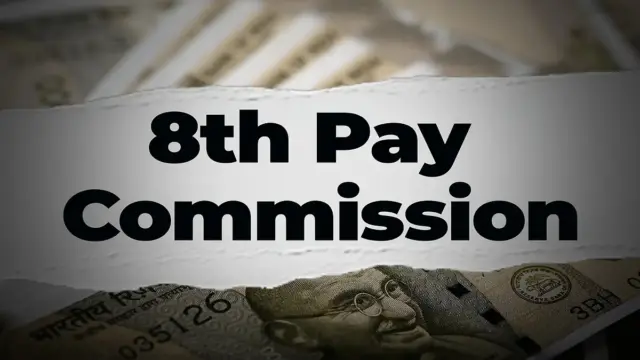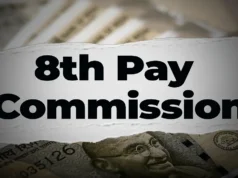
The central government has approved the formation of the 8th Pay Commission. This allows the pay and pension of about one crore government workers and pensioners all around the nation to rise. After this revelation, many want to know how much their monthly pay would increase under the revised pay scale. Reports indicate that the same computation method used by the 7th Pay Commission will be followed to raise the wage, helping workers from level 1 to level 10.
When is the 8th Pay Commission scheduled to be operational?
Under such circumstances, central staff members await the 8th Pay Commission’s conclusions. Following Union Cabinet permission, it is anticipated that it will be carried out following next year. The 7th Pay Commission began in 2016 and now guides employee pay.
The Fitment Factor will be the foundation of the new pay raise; it determines the pension and salary rise.
Define the fitfulness factor.
A fitting factor is one kind of multiplier used to raise the base salary. It was 2.57 in the 7th Pay Commission, so the base pay for Level 1 rose from Rs 7,000 (6th Pay Commission) to Rs 18,000. Still, this was not the employees’ pay going home. The total income was Rs 36,020 after including Dearness Allowance (DA), House Rent Allowance (HRA), Transport Allowance, and other perks.
8th pay is anticipated to raise the fitment factor to 2.86.
News is emerging that the 8th Pay Commission’s fitment factor would rise to 2.86. Should this occur, the Level 1 basic pay will increase from Rs 18,000 to Rs 51,480. Its impact will also be evident at all other levels, and the employees’ pay and pension will increase noticeably.
The 8th pay commission salary hike: what level will the increase be in?
- Level 1 (peons, attendants, support staff): Basic salary might rise from Rs 18,000 to Rs 51,480, increasing Rs 33,480.
- Level 2, the lower division clerks: Basic wage from Rs 19,900 to Rs 56,914; it might rise by Rs 37,014.
- Level 3 (constables, skilled personnel): Basic pay might rise from Rs 21,700 to Rs 62,062, a rise of Rs 40,362.
- Level 4 (Grade D stenographers, junior clerks): Basic pay could rise from Rs 25,500 to Rs 72,930, a rise of Rs 47,430.
- Level 5 (senior clerks, technical staff): Basic salary may rise from Rs 29,200 to Rs 83,512, a rise of Rs 54,312.
- Level 6 (inspectors, sub-inspectors): Basic pay could rise from Rs 35,400 to Rs 101,244, a rise of Rs 65,844.
- Level 7 (superintendents, section officers, assistant engineers): Basic salary might rise from Rs 44,900 to Rs 1,28,414, an increase of Rs 83,514.
- Basic pay for Level 8 (senior section officers, assistant audit officers) might rise from Rs 47,600 to Rs 136,136, a rise of Rs 88,536.
- Basic salary for Level 9 (deputy superintendents of police, accounting officers) may rise from Rs 53,101 to Rs 151,866, a rise of Rs 98,766.
- Basic pay may rise from Rs 56,101 to Rs 160,446, an increase of Rs 104,346. Group A officers, entry-level government services
When will the revised pay start?
After the 8th pay commission reports to the central government, decisions regarding the application of the recommendations will be adopted. Should all go according to plan, central staff members could begin receiving new pay next year. In this inflationary age, all government employees and pensioners are projected to gain excellent relief from the 8th Pay Commission overall.









